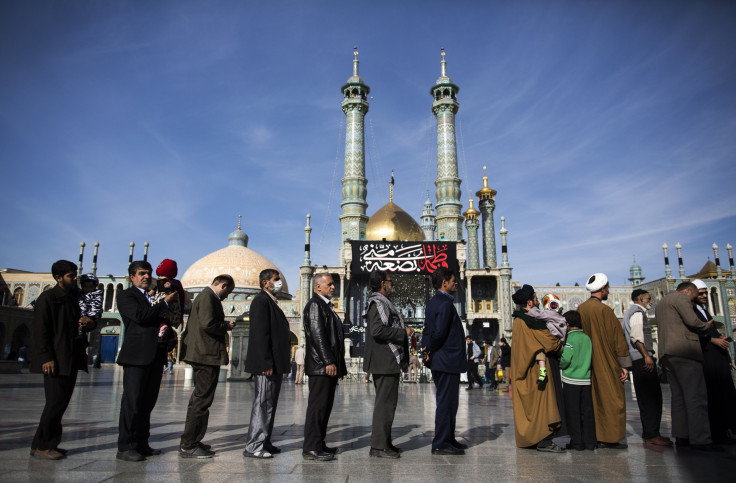Iran Elections 2016: President Hassan Rouhani’s Moderate, Reformist Allies Win All Tehran Seats In Parliamentary Polls

Iranian President Hassan Rouhani’s moderate and reformist allies won all of Tehran’s 30 parliamentary seats in elections, with 90 percent of votes counted so far, Agence France-Presse reported Sunday, citing state television. The List of Hope, a pro-Rouhani coalition of moderates and reformists led by Mohammad Reza Aref, pushed the number one conservative candidate, Gholam-Ali Hadad Adel, into 31st place, AFP reported citing the preliminary results.
A strong moderate and reformist performance will give a boost Rouhani, who played a key role in the nuclear deal with the U.S. and five other world powers despite bitter disagreement from hard-liners in Iran. After the initial results were announced Saturday, Rouhani said the polls gave the government more credibility and power.
“The competition came to an end and now it is time to open a new way through consensus and convergence of the nation and government and by relying on opportunities created from outside, to open a new chapter in the growth and flourishing of national economy,” he said, according to the official IRNA news agency.
Rouhani and former President Akbar Hashemi Rafsanjani lead the race for the 88-member Assembly of Experts, which will appoint a successor to 76-year-old Supreme Leader Ayatollah Ali Khameini when he resigns from the lifetime post or passes away. Rafsanjani has been viewed as a powerful political figure in Iran for long.
None of Iran's three main political camps — reformist, conservative and hard-line — was expected to secure a majority, but the reformist side is on track for its best performance in more than a decade.
The results hold significance because lawmakers from Tehran generally determine the political stance of the house. However, according to experts, the picture may be more mixed in smaller towns across the country, BBC reported.
Final results will only come out by Sunday or later, according to officials. A second round of elections will be conducted in several of cities where candidates received less than 25 percent of votes. The final tally must be established by the conservative-dominated Guardian Council, which has been accused by the reformists over the electoral process. They said that the Guardian Council, a 12-member body that inspects political candidates and is overseen by Khamenei, targeted them unfairly, the Wall Street Journal reported.
Friday’s voting came on the heels of lifting of sanctions by world powers against the Islamic Republic under a nuclear deal, which has yet to deliver its promised benefits, as the country is in recession. At least 21 people compete for each seat in the legislature and the elected candidates are expected to serve from May 3 for a four-year term.
© Copyright IBTimes 2024. All rights reserved.












